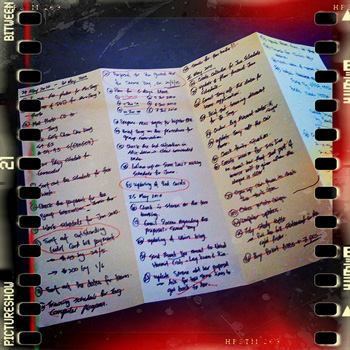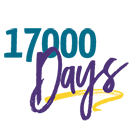
You sit down at your desk. You have several dozen things needing to be done, including about 10 that you’d love to finish today. Yet, instead of working, you find yourself reading blogs or Facebook.
There are plenty of productivity tools and techniques out there: clear your desktop, check email only once a day, use productivity applications to lock yourself out of the internet, and so on. Those things can help, but it seems to me they’re more about treating the symptoms than fixing the problem.
If your problem is getting started, check out my new guest post on The Change Blog–it’s all about how to get started when you’re stuck.
But what if you’ve already started, you know what you’re supposed to be doing, you have a plan, maybe you even like the task… but you still can’t make yourself get to work? Maybe you’re beginning to think you’ve recently developed ADD, or you’re just getting too old and losing your mind.
I’ve been there. Two years ago, I was totally convinced I had ADD. I could not concentrate or sit still long enough to accomplish a single thing at work, even if I stapled myself to my chair. I thought I was brain-damaged and needed to find a new profession. I just couldn’t do computer stuff any more!
But suddenly, along came Thanksgiving break, and I spent all of it building a website for my yarn business, totally absorbed for hours at a time, surfacing only occasionally to eat or sleep. Guess it wasn’t ADD after all!
Here’s something that may surprise you: it’s not necessarily laziness, either. There are many reasons to procrastinate. Aside from being intimidated or not wanting to do something, one common reason to procrastinate is the view that life is a perpetual flow of work. It doesn’t matter if you finish this task, because there’s an infinite queue behind it, with no fun in sight. So why waste the energy working?
Also, procrastination often rewards you. How many times have you put off a task you really didn’t want to do, and then something happened to render it unnecessary? That doesn’t have to happen many times to make Procrastination Roulette seem pretty attractive.
Another reason people procrastinate is for the adrenaline. Some people live for the rush of the frantic last-minute push before a deadline, just getting in under the wire. When you make the dramatic effort and get the job done in those final minutes, you probably feel like a hero, maybe even a firefighter… not realizing you were the arsonist who set the fire with your procrastination.
These reasons for procrastination make sense in their own way. We all observe the way the world works and get conditioned to do the things that get us some desired outcome. It wouldn’t make sense to do otherwise.
To get around procrastination, you need to find a way to make doing your work more rewarding than putting it off.
Making it work
First of all, it’s essential to get realistic about how much time you have. Make a calendar for the next week, and a list of what you want to accomplish in that time. Don’t write the tasks on the calendar; instead, block off all of the time that’s already committed to other things. Meetings, commuting, eating, sleeping, appointments–mark all of that time to show that it’s unavailable.
What’s left is the time you have to work with. It’s a lot less than a whole week, isn’t it? Suddenly, not finishing your to-do list may seem a lot more reasonable.
Now schedule in at least one fun thing to look forward to. This will help dispel your mental myth that there’s no point in working because no fun is coming.
Block off time for rest and exercise, too. For me, those are usually the first things to go when the schedule gets tight, but that’s counterproductive. Exercise and sleep are the two most powerful ways to help yourself think clearly and handle things well! You can’t afford to skip them.
The time that’s still blank on your calendar is what you have available for getting work done.
How to get the most out of your work time
-
Start with the most important thing you need to do. Most things take longer than we expect, so make sure if you run out of time, you’ll have the highest-priority things done.
I once read that I should goof off for half an hour before getting any work done, to get it out of my system. For me, this was the worst advice ever! I intend to send a few emails, catch up on Facebook, and get right to work—20 minutes, tops. But next time I look up, an hour has gone by, if not more.
Forget that. Get to work immediately.
-
Work in small chunks to stay on task. Deciding to sit down and do three hours of programming is too much. Trying to catch up from the time you spent goofing off yesterday, forget it!
Instead, start with 20 minutes. That’s long enough to accomplish a piece of something but not so long as to be completely miserable.
This can be hard at first, but it’s the most effective way I know to train yourself to concentrate and get back into mental shape. Commit to working for a solid block of 20 minutes, then taking a break or rewarding yourself in some way.
When you start a session, either set a timer or note your starting time. As you work, if you feel yourself tempted by distractions, note how much time you have left and direct yourself back to the task. Remind yourself it’s only 20 minutes.
When time is up, give yourself a small reward: walk around, talk to someone, eat a snack, or do something you like for 10 minutes (careful with this one–just 10 minutes!). This lets you associate work with rewards and realize there’s more to life than an unending stream of drudgery. After your break, go back for another 20-minute block.
At first, you may find yourself really squirmy, dying for the 20 minutes to be up. Notice exactly what’s bothering you.
-
-Are you overwhelmed with trying to understand all the nuances of what you’re trying to do? Try writing things down to help map it out for yourself.
-
-Are you intimidated by the task? Break it down into the smallest pieces you can.
-
-Are you lost as to what you really need to be doing or how to do it? Get help or clarification, from your boss or from research into how others have solved this problem. (If your research involves the internet, again, be careful not to get sidetracked.)
As you get used to working for 20 minutes at a time and really concentrating, it becomes easier and easier, until you can simply sit down at your desk and begin working.
-
-
Make it as easy as possible. Distractions are the enemy of getting work done. Make it easier for yourself by eliminating as many distractions as possible. Don’t try to multitask. Turn off email notifications, close your office door if you have one, and close all of the browser windows with fun stuff in them. Get all the junk off your desk.
If you’re in the middle of a session and you think of something unrelated that you want to look up or remember to do, make a note to yourself. This way, you can take care of it later but you don’t interrupt what you’re doing.
Concentration is golden–treasure it and protect it.
-
Enjoy how good it feels to accomplish things. Praise yourself, track your progress, and celebrate your accomplishments. The next day, remember how good it felt to be so productive the day before, and use that as inspiration to get started and stay focused.
Work can be very satisfying when you do a great job. The most satisfying activities require concentration; challenge you but match your skills well; provide immediate feedback; and represent a harmony between what you feel, want, and think. Those activities will give you the flow state if you can concentrate while doing them.
I talk a bit more about this in my book, How to be Happy (No Fairy Dust or Moonbeams Required)— doing gratifying work that takes you to the flow state is one of the best sources of true, deep happiness. It can be addictive, and it’s definitely better than procrastinating!
If you want to read more about beating procrastination and being productive, a lot of the ideas in this post came from The Now Habit: A Strategic Program for Overcoming Procrastination and Enjoying Guilt-Free Play by Neil Fiore.

I am hereby adopting the phrase “Procrastination Roulette.” I play that game all the time myself, but I think having a name for it will make it easier to call myself on it.
Awesome! I play it all the time–so bad.
Sometimes we get into a funk and it can last awhile. I find that after months of intense concentration I can sometimes go months without diving back into a project. I wanted this job…and I put everything into making it happen. My mental focus was off the charts but after it came for fruition I chilled out for a good few months before I took on a new project.
Definitely! It’s really important to realize that and give yourself time off after a big push–I’ve learned from experience, it’s way more productive in the long run, and it feels so much better!
Hello Cara, I couldn’t find a link to message you direct so…help please I cannot download your book, and I don’t want to add it to my one day i’ll get around to it list:) can you email me help?
Sent you an email — if you have any more problems, I’m cara [at] 17000-days [dot] com.
Hey, this article is really wonderful, I really want to conquer procrastination and I will try my best to do it.
Thanks a lot once again!
Thanks Arsh! I hope it goes well for you!
ADD and procrastination are my 2 biggest hurdles.
What the “beep beep!!” do I do with the rest of my days.(turned 55 yesterday) Ive been tossing this around for the past forever and now I have the time but not the energy to “do” something.
How can I turn my stitching blog into a “better” place to be.
And its definately scary thinking of putting myself out there.
Your posts are a great read and if you can do it, then maybe so can I..lol.
Regards Phillipa. (still bl##y procrastinating 😉
Thanks, Phillipa! Good luck!